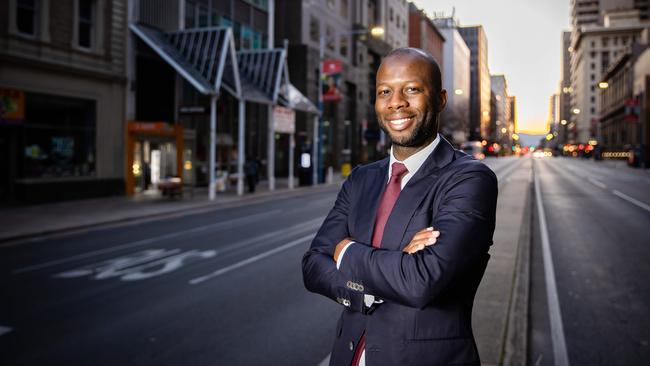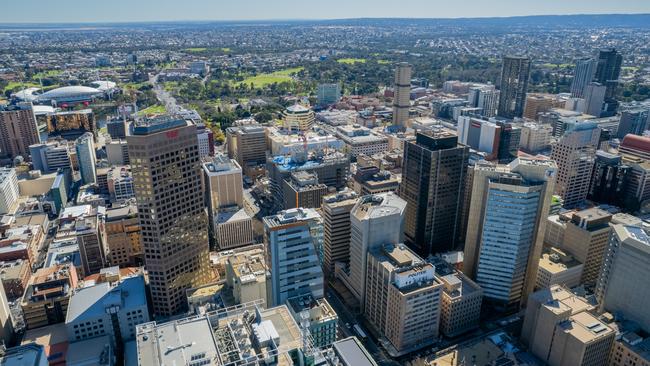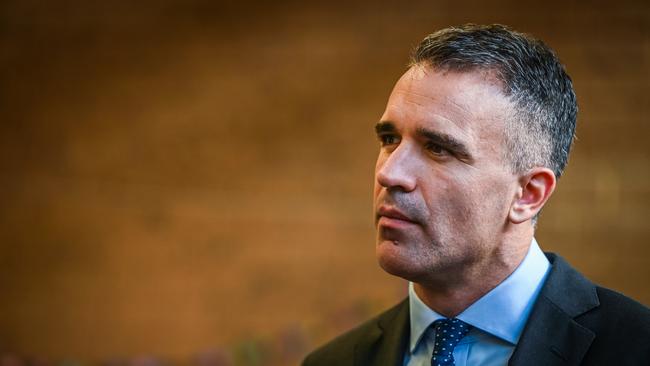Property is at the heart of all Adelaide’s challenges – and provides the solution
The way we’re going to compete, not just with Sydney but the world, is with political leadership to make hard decisions when it comes to property, writes Bruce Djite.
Opinion
Don't miss out on the headlines from Opinion. Followed categories will be added to My News.
Whether it is the roof over your head you call home, your place of work, where you go shopping or your favourite restaurant, property is the common denominator.
Property is Australia’s largest employer, generating more jobs than mining and manufacturing combined.
The industry traverses occupations including planners, architects, lawyers, developers, builders, owners, agents and operators of the built environment.
That’s why a healthy property sector is symbiotic with the economic health of South Australia.
While we are tired of talking about the pandemic, a global phenomenon of that magnitude has had profound implications for the way society operates.
It has changed the way we work, the way we shop and where we choose to live. And its impacts are still being felt.
The office market in Adelaide – as in the rest of Australia – is experiencing higher vacancy rates. More people are working from home and companies are choosing to occupy newer, high-quality accommodation.
Industrial land is in high demand, yet not enough is being supplied, as growth in online shopping has created the need to be located closer to delivery points and reduce the risks of volatile global supply chains.
Vacancy rates for residential property in Adelaide are unsustainably tight, with housing supply under tremendous pressure. The state experienced positive net interstate migration through Covid, and now the return of international students will further exacerbate the housing crisis.
Property is at the heart of all these challenges and provides solutions.
The question is: How do we manage population growth that comes with fulfilling the state’s economic potential?

Growth also requires productivity and participation. This means more people doing more with less.
Creating the conditions for this will require strong political leadership and bringing voters on the journey.
For example, how do we house more people in our CBD by increasing density, while not compromising green and open space?
How do we move more people efficiently with effective public transport?
How do we stop the outflow of educated young minds – our greatest natural resource – by attracting human and financial capital that creates a critical mass of lifelong career opportunities?
Premier Peter Malinauskas has spoken passionately about education as an economic policy because it equips people with the skills and sophistication to transform a society from an industrial-based economy to a knowledge-based economy.
On February 17 the Premier will be speaking to members and guests of the Property Council about this notion again, followed by a panel discussion led by Deloitte, which is leading work to unpack what it takes to support a complex economy.

Last week NSW Premier Dominic Perrottet, in a lame attempt at humour, made some boring remarks about why the New Year’s cricket Test should be held in Sydney and not Adelaide.
This kind of jab at SA is all too familiar, but equally, so is our predictable retort.
Arguing that Adelaide should get the Test because, among other things, our meat pies and beers are cheaper than Sydney’s are, is, to put it mildly, old-fashioned industrial-economy thinking.
The way we are going to compete, not just with Sydney but the world, is by getting sophisticated and being bold in our decision-making process.
Adelaide was ranked third most liveable city on planet Earth recently. I have lived all over the world and I’ve never heard of people coming here because of our meat pies.
Trust me – it’s not a thing.
The chance to make a transition to a sophisticated knowledge economy is a legitimate opportunity in Adelaide, with recent announcements like AUKUS and the university merger.
Exploring how to attract a greater share of domestic and foreign capital as we lean into these opportunities will be key.
This will require a forensic investigation of the barriers to investment so that it is more attractive for major companies to set up headquarters in Adelaide.
Naturally this will require leaders to have the courage to regularly examine whether our tax, planning, and regulatory environment is best in class and conducive to investment.
This will require the state government to continue to partner with industry. This is why the property sector plays a special role.
Property unblocks constraints to growth, given the built form underpins the majority of bold transformative ambitions for SA.

Examples of this include ensuring that our university buildings evolve to supply local emerging industries with talented young minds and research capability.
So will ensuring our airport is equipped to receive more direct flights to access major foreign markets to promote SA’s products and services and attract increased business and tourism.
Inevitably, along with this, productivity gain will include much-needed population growth as more people consider SA a desirable career destination.
This will require new and diverse forms of housing.
Population growth naturally threatens certain elements of the community. But, without the political leadership to make the hard decisions, a failure to do so will result in dire economic, cultural, and social outcomes for the state.
Bruce Djite is the Property Council of Australia South Australian executive director.





